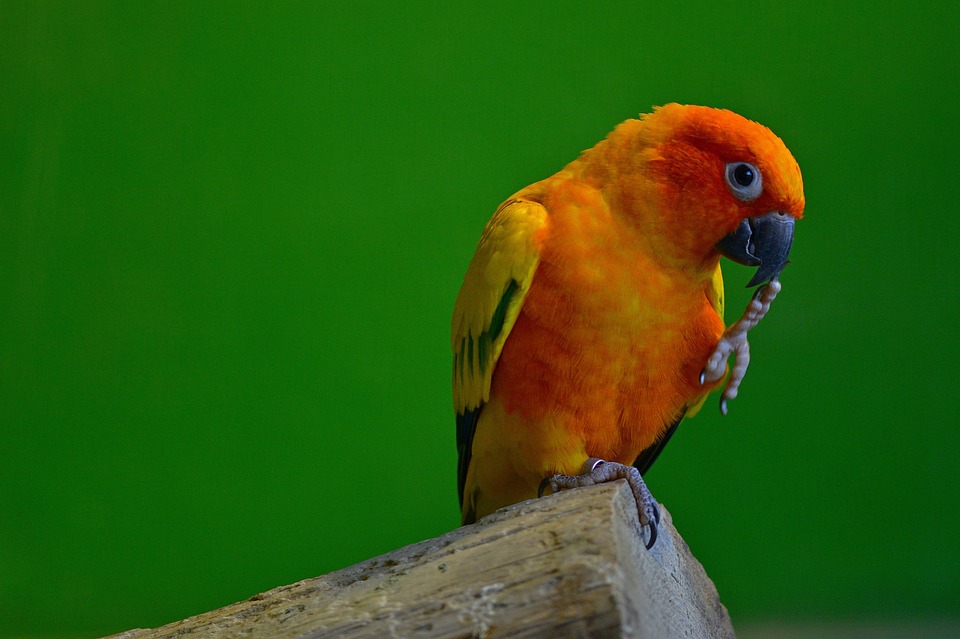Parrots are known for their vocalizations, but excessive night calling can disrupt their owners’ sleep patterns and become a nuisance. In this article, we will explore effective strategies to discourage parrots from engaging in excessive night calling or vocalizations.
Understanding Excessive Night Calling or Vocalizations
One of the first steps in addressing excessive night calling is understanding why parrots engage in this behavior. Parrots are social creatures and may call out at night as a way to seek attention, express loneliness, or establish their territory. Additionally, certain triggers such as changes in lighting, noise disturbances, or hormonal changes can also contribute to excessive vocalizations.
The impact of excessive night calling can be detrimental to both the parrot and their owner’s well-being. Sleep disruptions can lead to fatigue, irritability, and decreased cognitive function for both parties involved. It is important to address this behavior for the overall health and harmony of the household.
Implementing Behavioral Modifications
There are several strategies that can be employed to discourage excessive night calling in parrots. Consistency is key when it comes to establishing a sleep routine and environment. Providing your parrot with a quiet, dark, and secure sleeping area can help promote a more restful night’s sleep.
During the day, it is essential to provide your parrot with mental and physical stimulation to prevent boredom. Engage your parrot in activities such as puzzle toys, foraging exercises, and interactive play sessions. This will help tire them out and encourage better sleep patterns at night.
Positive reinforcement training can also be a valuable tool in discouraging excessive vocalizations. Reward your parrot when they engage in desired behaviors, such as quiet play or resting calmly. This will help reinforce the idea that being quiet is rewarded and can lead to a more peaceful sleep environment.
Using white noise or background music can also be helpful in drowning out external noises that may trigger your parrot’s vocalizations. Soft, calming sounds can create a more soothing atmosphere for your parrot to sleep in.
Addressing Underlying Health Issues
If you have implemented behavioral modifications without success, it is important to consult with an avian veterinarian. There may be underlying health issues that are contributing to the excessive vocalizations. An avian veterinarian will be able to identify and manage any potential health issues that may be affecting your parrot’s sleep patterns.
Hormonal changes can also play a role in excessive vocalizations. During breeding seasons, parrots may become more vocal as a way to attract a mate or establish their territory. Understanding and managing these hormonal changes can help reduce excessive night calling.
FAQs (Frequently Asked Questions)
1. How long does it take for behavioral modifications to show results?
Results may vary depending on the individual parrot and the consistency of the interventions. It may take several weeks or even months to see significant improvements in vocalizations. Patience and consistency are key during this process.
2. Could excessive night calling be a sign of loneliness or boredom?
Yes, excessive night calling can be a sign that your parrot is feeling lonely or bored. Providing mental and physical stimulation during the day, along with a calm sleeping environment, can help address these underlying causes.
3. Can covering the cage at night help reduce vocalizations?
Covering the cage at night can create a darker and quieter environment, which may help reduce vocalizations. However, it is important to ensure that there is still proper ventilation and that your parrot feels safe and secure.
4. Are there any specific parrot species more prone to excessive night calling?
While excessive night calling can occur in any parrot species, there are some species, such as African Grey parrots and Cockatoos, that may be more prone to this behavior.
5. Should I consider getting a companion for my parrot to reduce night calling?
Introducing a companion for your parrot can help alleviate feelings of loneliness and reduce night calling. However, it is important to carefully consider the dynamics between the parrots and properly introduce them to ensure compatibility.
Conclusion
Excessive night calling or vocalizations can disrupt both parrot and owner sleep patterns and negatively impact their overall well-being. By understanding the potential triggers behind this behavior and implementing appropriate interventions, such as consistent sleep routines, a calm sleeping environment, and mental stimulation during the day, you can help discourage your parrot from engaging in excessive night calling. Remember, addressing any underlying health issues and consulting with an avian veterinarian is crucial for a holistic approach. With patience and consistency, you can establish healthier sleep patterns for your parrot while maintaining a harmonious living environment.









